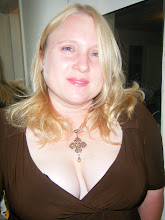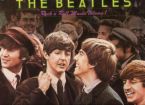Or: The reasons I love geocaching...without my husband

I mentioned in an earlier entry that I wanted to start talking about reasons I love geocaching. I was looking forward to another geocaching adventure last Saturday, but the trip did not go as planned.
It started going downhill during the dressing for the adventure. I originally had on some plain colored tee and workout pants, but I asked my husband if I looked like a Wal-Mart shopper and he said yes (not that there's anything wrong with it). I changed into khaki shorts and a loose scoop necked tee. I had been out earlier and it was actually a pretty warm day, so my new outfit was not only more fashionable, but more weather friendly.
My husband comes out, and he looked like a Wal-Mart shopper for sure. He was wearing black sweat pants and a long sleeved black t-shirt, and was working the flip-flops. I told him he needed to change either the top or the pants and definitely change those shoes.
"We're going geocaching. You'll need your sneakers!"
But he didn't listen to me, didn't want to change his shoes. He wanted to go, insisted we leave in these conditions. I wanted to refuse to go unless he changed, but we were both holding firm, so I decided to cave in and let it go.
I had a list of about eighteen caches I wanted to get, mostly sneaky urban micros which typically don't require much walking. Okay, it was ambitious, but so what? I was prepared to be satisfied with around four or five. Plus, we were talking about getting some food, since we hadn't eaten since brunch. I was in a great mood. I was even wearing my hat, and when I wear my hat, my "fun-lovin'" side comes out. We dropped the kids off at my mom's and prepared to have some fun couple time together.
The first one we get to is in this alley. It has been out for a few weeks and the logs all mention that it is very clever, very smart. I know the cache hiders, and I consider them part of the "geocaching intelligencia". Geocaching appeals to so many different kinds of people and for different reasons. Among those are this intelligencia, smart cachers who place clever hides, or create complex puzzles, or who have themed hides that revolve around some supersmart interest of theirs. These cachers who hid this one pride themselves on hiding great caches in great locations, so I know that even though this is an urban micro, it won't be some simple LPC (light post cache) or LUM (lame urban micro).
I zero out on this door leading to the alley from the inside, maybe the grocery store that used to be there. I am not having good reception, getting close readings all over the area, and I search the obvious places. I looked all around, and then took a deep breath to start over, the next layer of detection. I went back to GZ and started taking a deeper look at everything. I put my hand on the key hole on the door and...it moved slightly. Key holes shouldn't move...and there it is.
And there it is, perhaps, the redemption of this trip: one more reason I love geocaching. Once you get to the area, you use reasons of detection to find out what is below the surface. There are little treasures everwhere, underneath the eye of a casual observer, just like characteristics in people, everyone full of little secret surprises. You just have to keep your eyes open.
So we arrive at the next stop. Here is where we have our first dilemma: this cache is called "Houston Park-N-Grab #3", so naturally I assumed it would be what the term "park n grab" typically means, which is where the cache is so close you can almost drive right up to it, within about 100 ft usually. Evidentically, it was ironically named. When we parked, we were 0.14 mile away and it was showing it to be into this park with great walking trails. I was sooo going, but my husband didn't go to get out. He said he wanted to stay in the car, protesting,
"I've got the wrong shoes on".
So I take off on my own. It was a great day to be enjoying the outdoors. People were everywhere, so much so that searching was hard once I reached within 40 ft. I was checking the area out where I was closest, and suddenly I saw it. It was on the other side of a chain link fence!
I walked further down the exercise path scout for an entrance to that section, and also because if I wasn't going to be able to get that one, I wanted to at least get the other one I hadn't gotten in this park. It was called "Greybeard" and the clue was simply the title. I could see what tree this one must refer to around the corner of the walking path. It was an easy find, and I continued along the circular path back to the car, never finding the exit to the other area.
I felt very lonely out here, thinking about my husband in the car drinking and listening to music, and how we could be out here getting some exercise together. I used to enjoy it when we would go run together at the YMCA. Sure, he left me in the dust at some point, but we would find each other at sections of the trail up ahead and run together a ways. That was fun. This was not as much fun. It was such a nice day and we could be enjoying it together.
When I got back to the car, we tried to find access the trail area, but it became clear we would have to approach it from a different direction. As we drove, I saw, on the opposite side, the park that must be where final was to the puzzle cache that I solved that morning. I told my husband to turn around. This is how it went,
"Now turn in here."
He keeps driving straight. "Turn in where?"
"Here!" I point in the parking lot.
"Where?"
"Here! Now! Turn!"
"Why are you yelling at me?"
Oops. We missed it. So I go on to the next one. This one is in a Wal-Mart parking lot.
This reminds me of a joke. Recently, (this part is true), two hikers that were lost in a whiteout while climbing Mt Hood were found because they stumbled upon a geocache and were able to use that to give their location on the mountain. There was a thread about this in our Houston Geocaching Society forum, making a case that we should make sure the coordinates are written inside the cache. My friend Gary (aka Texas DreamWeaver) says this:
Do you think that we should all return to the practice of including the coordinates with the cache? I can just visualize some Houston mountain climbers, lost and suffering from hypothermia, opening up a 35mm film canister which didn't have the coords listed inside. With out longitude and latitude, how would they know which Walmart parking lot they were in? To think, by simply following the guidelines, a tragedy could be averted.
When I read that, I had just taken a bite of my lunch, and I started laughing so hard I almost choked. This hide we were at, however, is put out by our local urban micro genius, an older man who has unique and clever hides and is meticulous about his coord accuracy. And I have tried to find it twice before to no avail and really needed some help on it.
BUT...we had this little issue over the parking. ("Park here" "Where?" redoux). And we ended up getting into a screaming match. And then neither of us wanted to go caching anymore, or hang out together. We both just wanted to go home. As we drove, one of us would start talking, and it would result in more fighting. I was desperate to try to redeem the afternoon, make it not all bad, find some middle ground. We already agreed the geocaching was out, it was causing us to fight, the mood was broken.
I suggested he take me out for some nachos. Mexican food would be the only thing better than geocaching, and maybe I could be all right with the afternoon after all if I just had some chili con queso and chips.
"Well, maybe," My husband says, "maybe we can put it all behind us, start over again, and just go out to eat. There is just one condition,"
"What's that?"
"We have to go home first. I'm wearing the wrong shoes."































